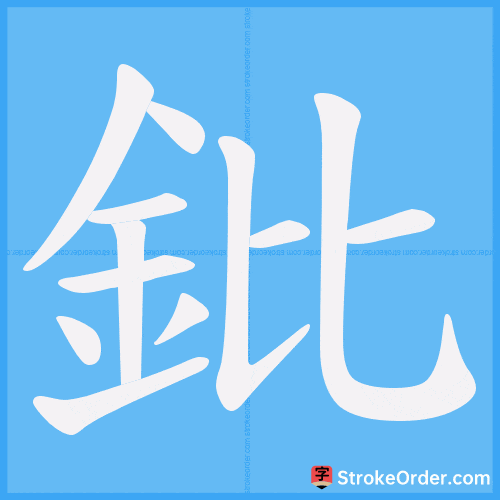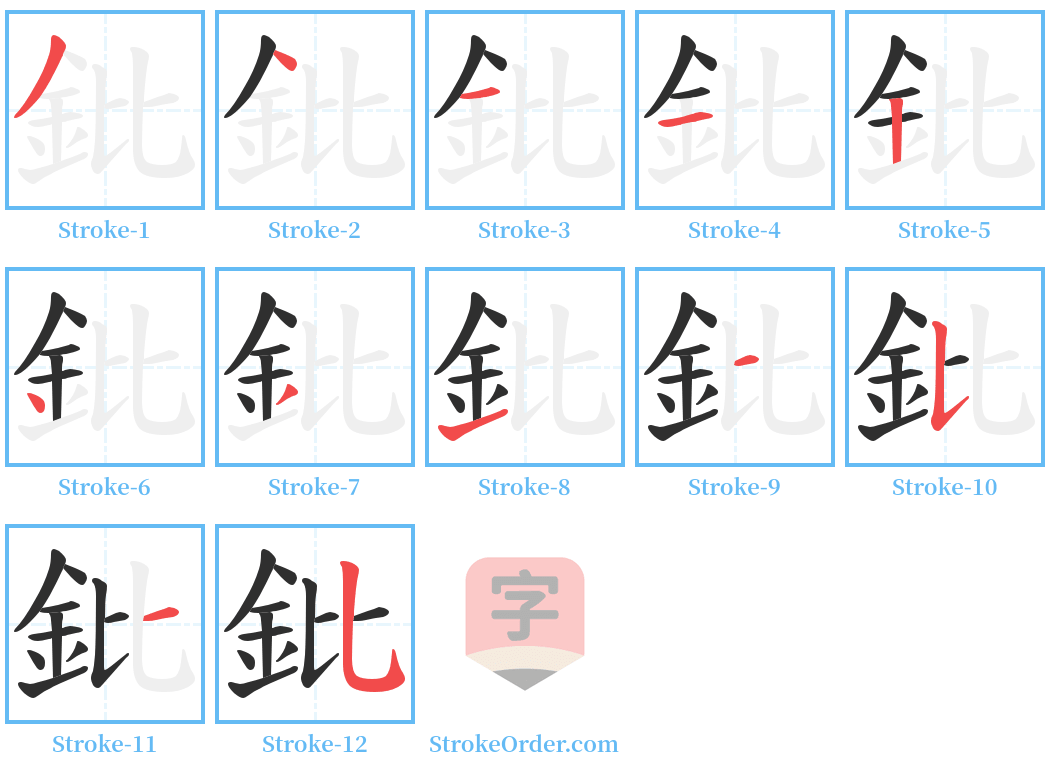鈚 Stroke Order
Animated Stroke Order of 鈚

Stroke Order Diagrams for 鈚

Information of 鈚
Pinyin
pī
Radical
釒
Strokes
12 strokes
Usage
★★
Definition
鈚 [pī]
(名)
1. 一种较宽较薄的箭头。
(An arrowhead that is wider and thinner.)
2. 铁。
(Iron.)
3. 犁刃。
(Plough’s blade.)
引:
1. 《广韵》:鈚,犁馆别名。周祖谟校勘记:“馆字误,《集韵》作‘鈚’是也。”
(From "Guangyun": 鈚 is an alternate name for ploughs. Zhou Zumo's note: "The character for '馆' is mistaken, it should be '鈚' according to 'Jiyun'.")
2. 鈚箭。箭的一种。
(鈚 arrow. A type of arrow.)
例:
如: 鈚子箭(即鈚箭); 鈚箭(箭头较薄而阔,箭杆较长)
(For example: 鈚子箭 (i.e., 鈚 arrow); 鈚箭 (The arrowhead is thinner and wider, the shaft is longer.))
—
引自繁体辞典解释:
1. 箭頭較薄而闊,箭桿較長的箭。唐·杜甫〈七月三日亭午已後校熱退晚加小涼穩睡有詩因論壯年樂事戲呈元二十一曹長〉詩:「長鈚逐狡兔,突羽當滿月。」
(An arrow with a thinner and wider arrowhead, and a longer shaft. Tang Dynasty poet Du Fu, in a poem: "Long 鈚 chasing a cunning rabbit, feathers piercing the full moon.")